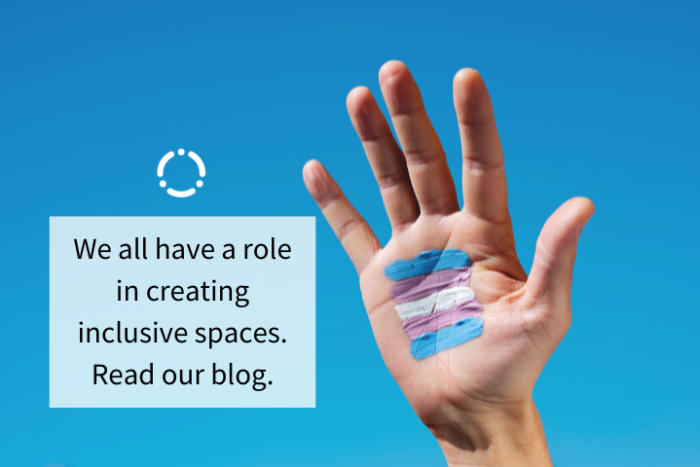Friday, March 31st, is The International Transgender Day of Visibility (TDOV). The goal of this day is to celebrate transgender people and their accomplishments while acknowledging the systemic barriers and inequities that still prevail. Thank you, Lucy White and David Palmer, for this article emphasizing the significance of the International Day of Trans Visibility.
The Stats
According to Statistics Canada, “one in 300 people in Canada aged 15 and older are transgender or non-binary”. The Gay and Lesbian Alliance Against Defamation ( GLAAD) outlines that the “International Day of Trans Visibility” was created in 2010 by trans advocate Rachel Crandall,” and the goal was to shift from harmful media stereotypes toward the community reclaiming their narrative. It’s empowering for community members to see positive and accurate representations of fulfilled lives and trans joy. Stories about trans people often centre on violence and hate, but our lives are so much more than that. Multidimensional portrayals are imperative to holistic representation that can change societal perceptions.
While visibility is important for highlighting transgender people in society, it must be accompanied by adequate protection and accommodation. Transgender people are extremely vulnerable to violence, abuse, discrimination, poverty, social isolation, and poor mental health outcomes due to stigmatization. Visibility can bring positive paradigm shifts, but it can also become incredibly unsafe if not accompanied by material changes that improve accessibility and safety. For many people, visibility is not an option due to the negative repercussions that would follow.
Transgender in Canada
Canada is considered a haven for many LGBT refugees, and organizations like the Rainbow Refugee Society assist refugees in relocating and finding a community. Many provinces and Territories also provide transgender people with access to gender-affirming healthcare. The Yukon is a leader in this regard. At the end of 2019, it enacted the most comprehensive transgender healthcare policy in Canada. It’s incredibly vital to many transgender people’s well-being to have adequate healthcare support to assist them if they choose to transition medically. In fact, this care is considered lifesaving for many people.
Rights Across The World
As of June 2017, the Canadian Human Rights Act introduced legislation that prohibits discrimination based on gender identity or expression. Unfortunately, we are seeing a mass rescinding of rights for transgender people in the United States and the United Kingdom. According to PBS, “at least 150 bills targeting transgender people have been introduced” within the United States over the past year. Recently, a Conservative commentator was met with raucous applause and cheers after proclaiming, “transgenderism must be eradicated from public life entirely.” Although this isn’t Canada, it’s essential for advocates and community members to remain vigilant. These decisions could harm transgender people here.
What can you do to help?
It’s important to always respect someone’s identity. If you are meeting someone new and you are unsure what pronouns they use, it’s best to discreetly ask them or take cues based on how they refer to themselves. It’s important for allies to educate themselves and not ask transgender people inappropriate or intrusive questions. If you wouldn’t feel comfortable asking everyone the question, it’s typically not appropriate to ask a transgender person. Fortunately, there are many resources available online that can help you become an advocate. The International TDOV is a day to be proud of our strides and highlight where change still needs to happen.
Additional Resources
The National Center for Transgender Equality has also created a document outlining how to be a good ally to transgender people: https://transequality.org/sites/default/files/docs/resources/Ally-Guide-July-2016_0.pdf
SFI thanks David and Lucy for their contributions to bringing awareness to help foster inclusivity and understanding. We are proud that our programs are inclusive to all: https://strongestfamilies.com/get-help-now

